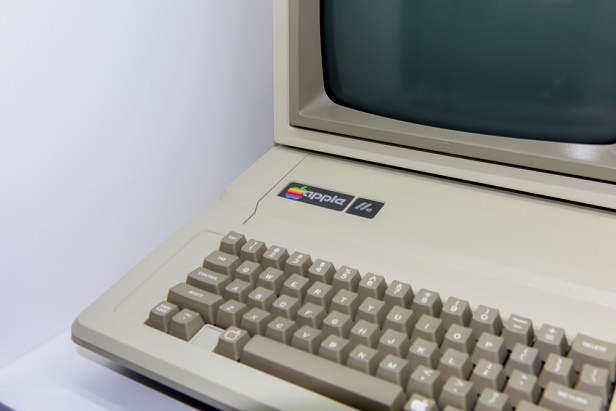Many think the Apple II and Radio Shack's TRS-80 represent thebeginning of the personal computer era. Indeed, Byte Magazinelabeled these two microcomputers, along with Commodore's PET, allof which debuted in the same year, as the "1977 Trinity." So it'snot unusual for the casual observer to cite those units as "thefirst."
|But that's wrong. Those in the field generally recognize theAltair 8800 as the first actual personal computer. Coming out in1974, its use of an Intel microprocessor, the S-100 computer bus,and Microsoft's founding product (Altair BASIC) became the templateupon which a future industry thrived.
|In a similar way, some look at the SECURE Act's authorization ofpooled retirement plan vehicles known as 401(k) PEPs as a newbeginning. While 2021 (the year these plans can startbeing offered) may be similar to the year 1977 for the personalcomputer industry, it in no way represents the "first" for thiskind of retirement plan.
|Nor, as some might suggest, does it even hint at something akinto the broad deregulation of the retirement industry without thebenefit of a single beta test (in keeping with our high-techmetaphor).
|In fact, the SECURE Act is nothing more than an open multipleemployer plan (Open MEP) with a twist. (Don't worry if you'reafraid you need to learn more abut this. Things don't begin inearnest until January of 2021, see "How Best to Prepare Yourself toGo from Zero to MEP/PEP in Four Months," FiduciaryNews.com, July 28, 2020).
|Closed 401(k) MEPs have been around for a while, but onlyavailable to the rare few. Used many by trade associations andother business groups, they represent the beta test for what'sabout to happen.
|In fact, retirement savings advocates have been trying to make401(k) MEPs more generally available to everyone for years. At thispoint, the new form of open 401(k) MEP (called a pooled employerplan or PEP in the SECURE Act) appears to be the privatecounterpart to state-sponsored pool retirement vehicles for privatebusinesses.
|Don't get me wrong. MEPs/PEPs have the potential to change theretirement plan industry. Companies find them easier to implementthan stand-alone plans. They're certainly not for everyone, but mygut tells me they'll be enough for most.
|But don't confuse the coming change with a waterfall. It'llprobably start as a trickle.
|At this point, it's only the more sophisticated serviceproviders that understand the utility of this vehicle. Smalleradvisers – the ones who only have a handful of 401(k) clients (andthat's mostly because the companies are owned by their privateclients) – generally aren't as studied in the retirement planarena. It's not that they are ignorant, it's just that theirbusiness model prioritizes personalized individualized managementservices, not corporate management services.
|Based on my field experience (disclosure, for many years I usedto act as a 3(38) adviser for a business association 401(k) MEP), Ican predict two things:
|1. Many of the owners of these small plans demand customizedplans that cater to their specific individual needs. They see theplan as very related to their personal investment/financialplanning needs. They probably won't want to give up controlnecessitated in joining a MEP/PEP. For them, control is moreimportant than cost and, since their assets represent the bulk ofthe plan, they aren't concerned with fiduciary liability, soanother attraction of the MEP/PEP is diminished.
|2. Many more small business owners – the majority of which donot currently offer 401(k) plans because of their cost, timecommitment, and liability downside – will for the first time beintroduced to the MEP/PEP solution. Those that currently have plansbut don't fall into category #1 above, will immediately see theadvantages of the pooled vehicle and jump at the opportunity tojoin. Those without plans? Ah, there's where the hypothesis istested to the fullest. My guess is MEPs/PEPs will be seriouslyconsidered in states which require companies – no matter how small– to offer retirement plans. This is where the MEP/PEP becomesserious competition against state-sponsored plans.
|It's not all upside.
|There is one thing that even MEP veterans fear – that largefirms like Fidelity and Vanguard (et al) would monopolizethe MEP/PEP market. This could lead to a return of the "bundled"service provider concept that plagued the industry up until about adecade ago. These big firms have the advantage of logistics, whichwill create immediate cost benefits that even MEP veterans can'tsummon quickly.
|Of course, this assumes the MEP/PEP market will continue asmerely an extension of the existing stand-alone 401(k) serviceprovider infrastructure. The MEP/PEP vehicle, however, istailor-made for a new way of envisioning the array of401(k) service providers. By adopting a multi-dimensionalbusiness model, MEP/PEPs can avoid bundling, keep service local,and incorporate a broader range of professionals without unduecosts.
|The unfolding of the MEP/PEP market will be fascinating. It willbe pure unadulterated competition – much like when personalcomputers first came out in the 1980s – dozens of competitors, acouple of big ones, a couple of unknowns that will become big ones.Mind you, in the personal computer industry, IBM didn't win(although their model did). It was the nimbler newbies that won(Compaq and Dell) the early rounds.
|The more interesting question is this: Who will the lone-wolfApple be in the burgeoning MEP/PEP industry?
Complete your profile to continue reading and get FREE access to BenefitsPRO, part of your ALM digital membership.
Your access to unlimited BenefitsPRO content isn’t changing.
Once you are an ALM digital member, you’ll receive:
- Critical BenefitsPRO information including cutting edge post-reform success strategies, access to educational webcasts and videos, resources from industry leaders, and informative Newsletters.
- Exclusive discounts on ALM, BenefitsPRO magazine and BenefitsPRO.com events
- Access to other award-winning ALM websites including ThinkAdvisor.com and Law.com
Already have an account? Sign In
© 2024 ALM Global, LLC, All Rights Reserved. Request academic re-use from www.copyright.com. All other uses, submit a request to [email protected]. For more information visit Asset & Logo Licensing.









